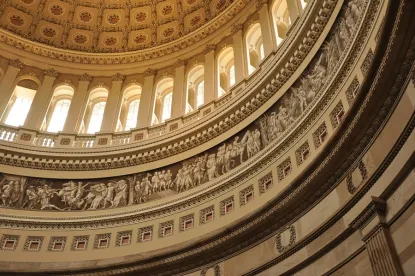On January 1, 2021, the U.S. Congress voted to override a presidential veto of the National Defense Authorization Act (NDAA)1, the annual military spending bill. Tucked away in the 1,400-page legislation are provisions granting the Securities and Exchange Commission (SEC) statutory authority to pursue disgorgement in federal court actions and extending the statute of limitations for the SEC to recover disgorgement from five to 10 years for scienter-based claims. The legislation also provides for a 10-year statute of limitations for other equitable relief, including injunctions, industry bars, and suspensions.
With this legislation, Congress provides a partial fix for two recent Supreme Court decisions that limited the SEC powers; Kokesh v. SEC2 and SEC v. Liu3. In Kokesh, the Court held that the SEC’s disgorgement remedy was subject to a five-year statute of limitations, or look-back period, because the Court considered disgorgement to be penal in nature and thus subject to the same limitations period as other civil penalties under federal law.4 Notably, the Court stated in a footnote that it was not opining on whether federal courts actually possessed the authority to order disgorgement in SEC enforcement actions. At the time, commentators suggested that this footnote could open the door for litigants to argue the SEC lacked the ability to pursue disgorgement in federal court actions. In the subsequent decision, SEC v. Liu, the Court held that the SEC could in fact seek disgorgement as an equitable remedy without express statutory authority in federal court actions provided, however, that the remedy was applied using traditional equitable principles. Such principles included limiting disgorgement to net profits, returning disgorgement to harmed investors, and prohibiting joint and several liability.
The NDAA (1) addressed some, but not all, of the impact of Kokesh and Liu by amending Section 21(d) of the Securities Exchange Act of 1934,5 and (2) providing the SEC with some additional authority, specifically:
-
It provides express statutory authority for the SEC to seek disgorgement in federal court of any unjust enrichment received by securities law violators;
-
It provides for a 10-year statute of limitations for the SEC to recover disgorgement for scienter-based claims under all the federal securities acts, beginning from the latest date of violation (the five-year limitations period remains for non-scienter claims);
-
It provides for a 10-year statute of limitations for other equitable remedies, including injunctions, bars, suspensions, and cease-and-desist orders, regardless of scienter;
-
It tolls the statutes of limitations for disgorgement and other equitable relief during the time that a securities law violator is outside of the United States; and
-
It applies these new provisions to enforcement proceedings pending on, or commenced after, the date of enactment of the NDAA.
Importantly, the NDAA did not address the equitable limitations to disgorgement as provided in Liu and mentioned above. Accordingly, a question remains whether these limitations apply to the SEC’s newly granted statutory authority in federal court actions. While it appears they should, this question could be the subject of future litigation, depending on the SEC’s position going forward. There is little doubt, however, that the NDAA significantly strengthened the SEC enforcement hand in current and future enforcement proceedings.
--------------------------------------------------------
1 H. R. 6395.
2 137 S. Ct. 1635 (2017).
3 140 S. Ct. 1936 (2020).
4 28 U.S.C. § 2462.
5 15 U.S.C. § 78u(d).
Margaret G. Nelson contributed to this article.








 />i
/>i
